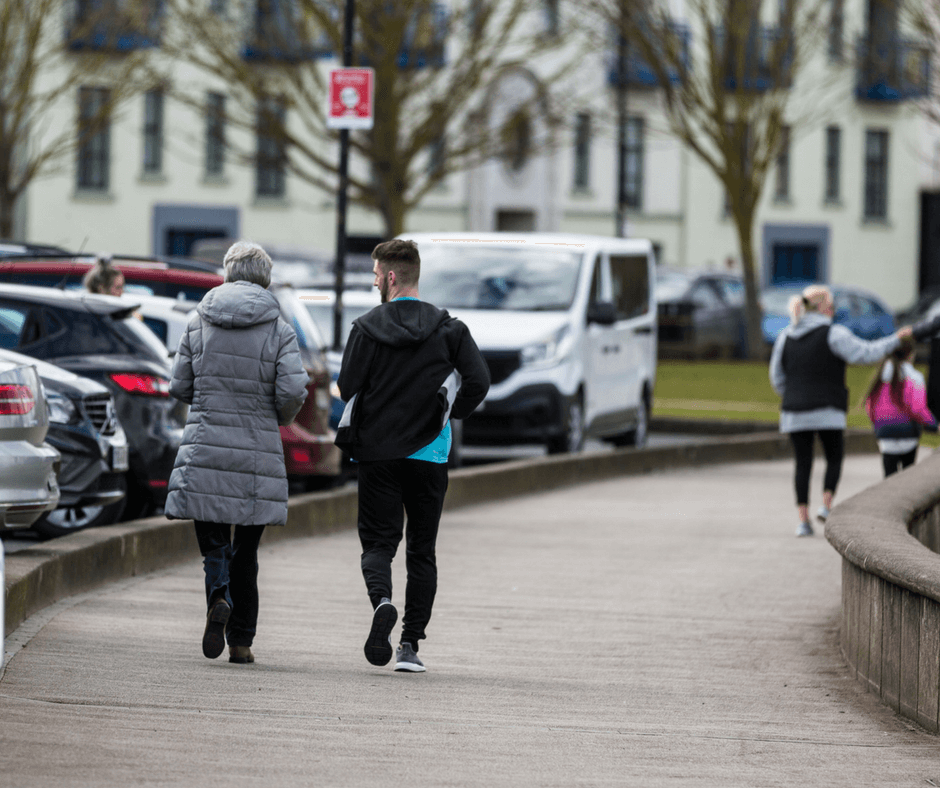How to motivate yourself to start exercising.
How do I motivate myself to start exercising? We can be full of excuses when it comes to not exercising and at Siel Bleu Ireland, we have heard them all. From “I have a bad back” to “I can’t, I’m too old and afraid of breaking a hip”, but we know, the most dangerous exercise you can do is no exercise at all! You are even more likely to fall if you are not practicing regular, appropriate exercise. The common phrase, “Use it or lose it” is particularly applicable to exercise. Take an engine for example, if you don’t start it for a long period of time it looses it’s ability to function well. Our bodies are exactly the same. This is why exercise, at all stages of our lives is very important.
There are so many reasons to start exercising, from improvements in your physical function, better mood and sleep patterns, increases in confidence and of course, overall better health. But taking the first step to actually start exercising can be quite daunting for a lot of people, especially older adults who perhaps have never exercised before. Gyms can seem like intimidating and scary places or you might not feel like you’re “bendy” enough for a yoga class. So where to start?
- Consult your GP – As an older adult, one of the best things to do is consult with your doctor first to see if there is any reason you shouldn’t practice physical activity. Your GP knows you and your medical history best, so consulting with them about an appropriate activity makes the most sense.
- Take the first step – With the go ahead from your GP, the next step is to find an activity that you like. Perhaps trying a low intensity exercise could be the gateway to a new fitter, healthier you. Try walking or swimming to start with, both are easier on your joints and can help to improve your overall cardiovascular fitness.
- Try out different activities – why not try an exercise class designed for your age group or your specific condition. There are so many classes available for people of all ages and most Patient Organisations have an exercise programme designed specifically for people living with that condition. Siel Bleu Ireland has a list of classes which you can join at any time. Classes like Siel Bleu or an aqua aerobics class can help introduce you to resistance training, which along with cardiovascular exercise are the key combination to a healthier you.
- Create a habit – it takes 28 days to adopt a new habit and exercise should be one of your main priorities. Schedule physical activity into your diary when you know you don’t typically have another appointment i.e. Tuesday mornings and Thursday evenings. This way you know each week you know when your exercise is scheduled.
- Exercise with other people – find out what type of activities your friends and family like to do and ask them can you join in. You could try a walking group where you might meet some new friends. Get Ireland Walking is a wealth of information. If a friend asks you to do something during your scheduled exercise time, you can suggest doing something physical, such as going for a walk or trying a new class together. Exercising with other people also creates accountability and you are more likely to keep up with your new habit.
- Little at a time – it’s important to introduce exercise in small doses, there is no need to overhaul your entire life in one week. Small changes are easier to keep up with and you are more likely to keep up with small changes than big ones. Try doing some activities from our At Home Guide while watching TV and you will be surprised how big an impact a little change can make. If you feel comfortable after a few weeks with one activity then try introducing another walking day or another class.
- Most important – have fun! There is no point in exercising if you are not enjoying it and let’s face it, you probably won’t keep it up. Exercise can be seen as a chore, but once you find something you enjoy, you’ve found the key!
Why not comment down below and tell us how you intend to take your first step!


